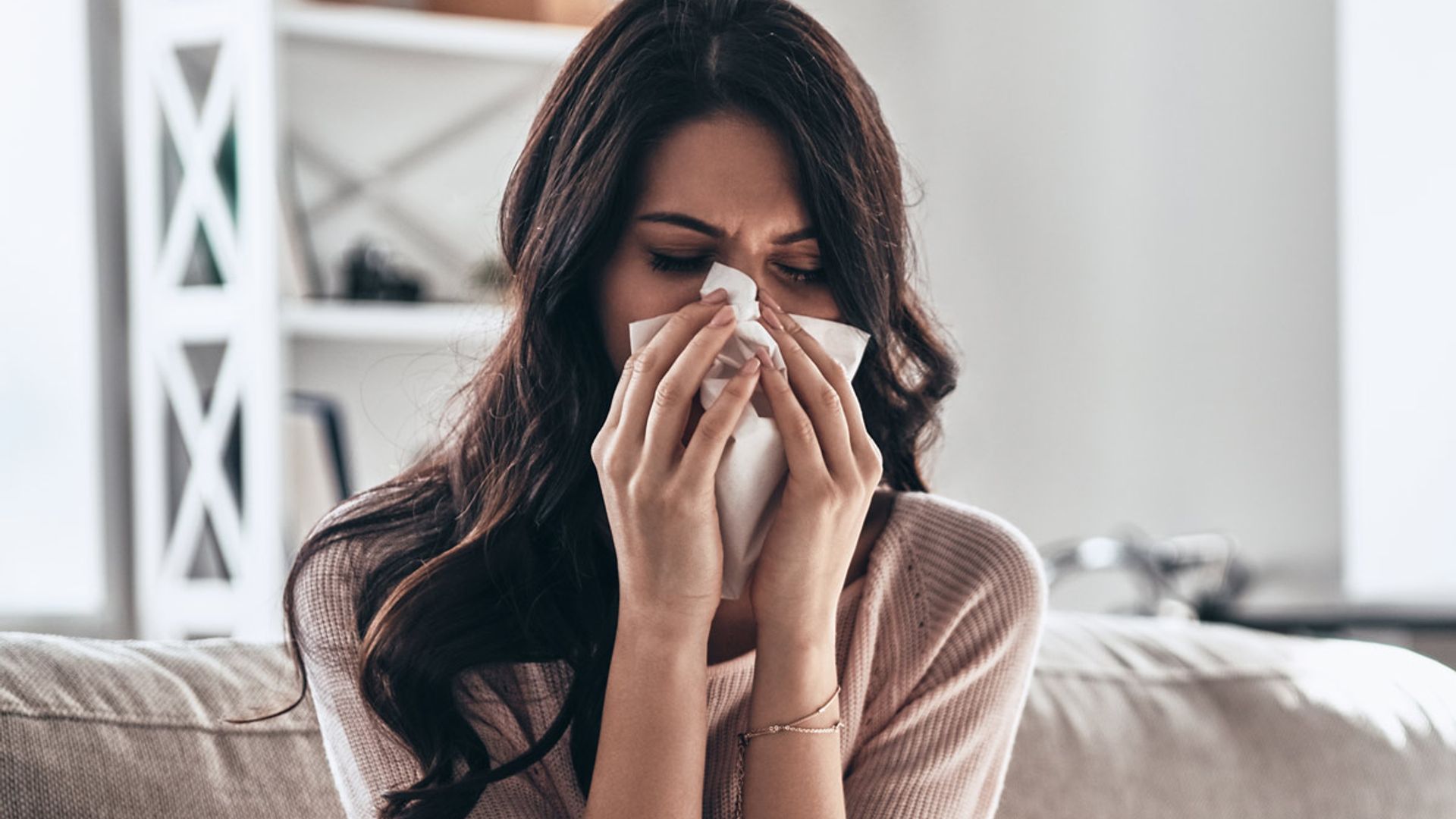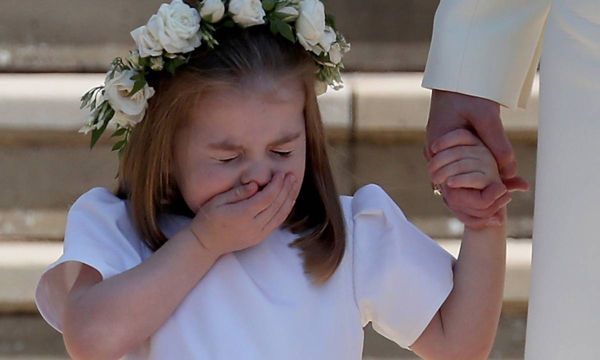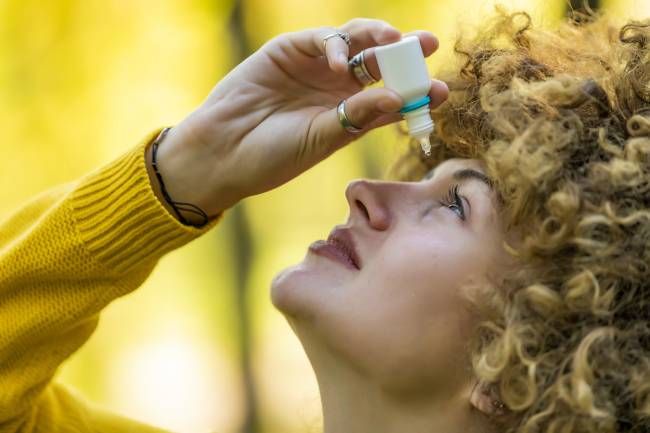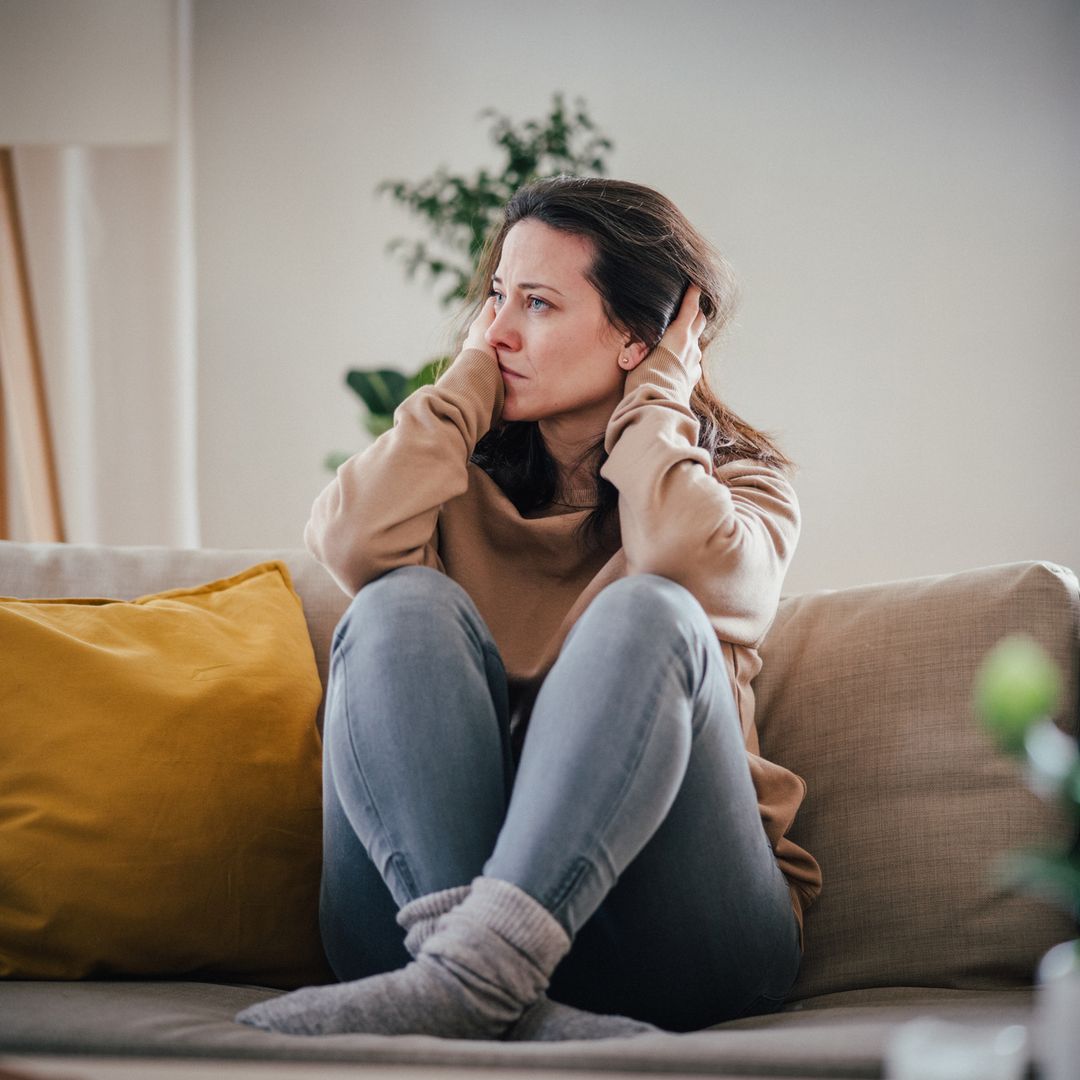Before the COVID-19 pandemic, many people would not have thought twice about a cough or runny nose, especially around the spring and summer months when hay fever symptoms are common. But with lockdown measures slowly beginning to lift and many people leaving their homes during the sunny weather, the slightest sign of these symptoms can lead to fears they have come into contact with the coronavirus. NHS Family Doctor Punam Krishan has shared her advice on how to differentiate between hayfever and COVID-19 to put people's minds at rest.
WATCH: Prince Charles speak about his coronavirus experience
When are you most likely to suffer from hay fever?
"Hay fever, for which the most common cause is grass pollen, is typically most prevalent from May to July so right now is when we will be feeling it the most. The pollen count is very high too at the moment so symptoms will be worse," she explained on Instagram, before reassuring her followers that anyone can develop hay fever at any point and suffer to varying degrees.
Unfortunately, symptoms are also not guaranteed to stop in July. Tree pollen also occurs between February and June, while weed pollens can cause the allergic reaction between June and September. So the first step is to look for specific coronavirus signs.
MORE: Royal doctor reveals 5 ways to treat hay fever
"Before you start panicking, review if the cough is new and persisting ie. lasting for more than an hour. If so, suspect COVID. With hay fever the symptoms tend to fluctuate depending on the time of day; pollen levels are often higher in the afternoons and evenings," Dr Punam continued. "The other difference is that COVID typically causes a fever (temperature >37.8) whereas hay fever doesn’t."
Hay fever symptoms can occur throughout the year
What are the most common coronavirus symptoms?
According to the NHS website, the main symptoms of coronavirus are a high temperature, a new and continuous cough, and a loss or change to your sense of smell or taste. Reiterating the government advice, Dr Punam said those experiencing one or more of those symptoms should self-isolate for seven days. She added: "If you live in the same household as someone with coronavirus symptoms, you must self-isolate straight away for 14 days. Remember to download the test and trace app and input your symptoms."
Prince Charles is among those who have been affected, suffering from mild symptoms of the life-threatening disease before self-isolating for seven days at his Scottish residence, Birkhall. Former royal doctor Anna Hemming recently opened up to HELLO! about how Charles' good health would have played an important part in helping him on his way to recovery.
RELATED: Dr Ranj reveals possible coronavirus symptoms in children to look out for
Anna – who worked at Buckingham Palace for seven years during her time working as a GP for the royal household – explained: "We know some people breeze through infection while others don't even realise they have it. There is no guarantee which group you may fall into when you get the virus, however, it is well documented that more who are fit and healthy, exercise and have a good balanced diet recover quicker."
What are the most common hay fever symptoms?
Hay fever affects two in ten people in the UK, and in most cases, symptoms can be treated easily with over-the-counter medications. "If you’ve got itchy/watery/red eyes, sneezing, runny nose or have an intermittent cough (with no fever symptoms), then suspect hay fever and take an over-the-counter antihistamine. Pharmacies are open as usual so seek advice if necessary from your local pharmacist. If symptoms are particularly troublesome or you are worried, phone your GP. The same goes for kids," the doctor explained.
Eye drops can help relieve hay fever symptoms
How can you relieve hay fever symptoms?
According to Allergy UK, other treatments include nasal saline douching, allergen barrier balm and nasal steroid spray. For those with allergic asthma - which can cause a tight chest and difficulty breathing - it is important to carry your preventative inhaler regularly.
Finally, Dr Punam shared a clever tip to ease nasal pain caused by hay fever symptoms. "Wee tip - putting some Vaseline around your nostrils can help to trap pollen, reducing its chances of entering your nose (plus also helps soothe surrounding skin if you’ve been over blowing or rubbing your nose!)"
READ: How to turn off the worry tap about the 'new normal' and protect your mental health in lockdown










